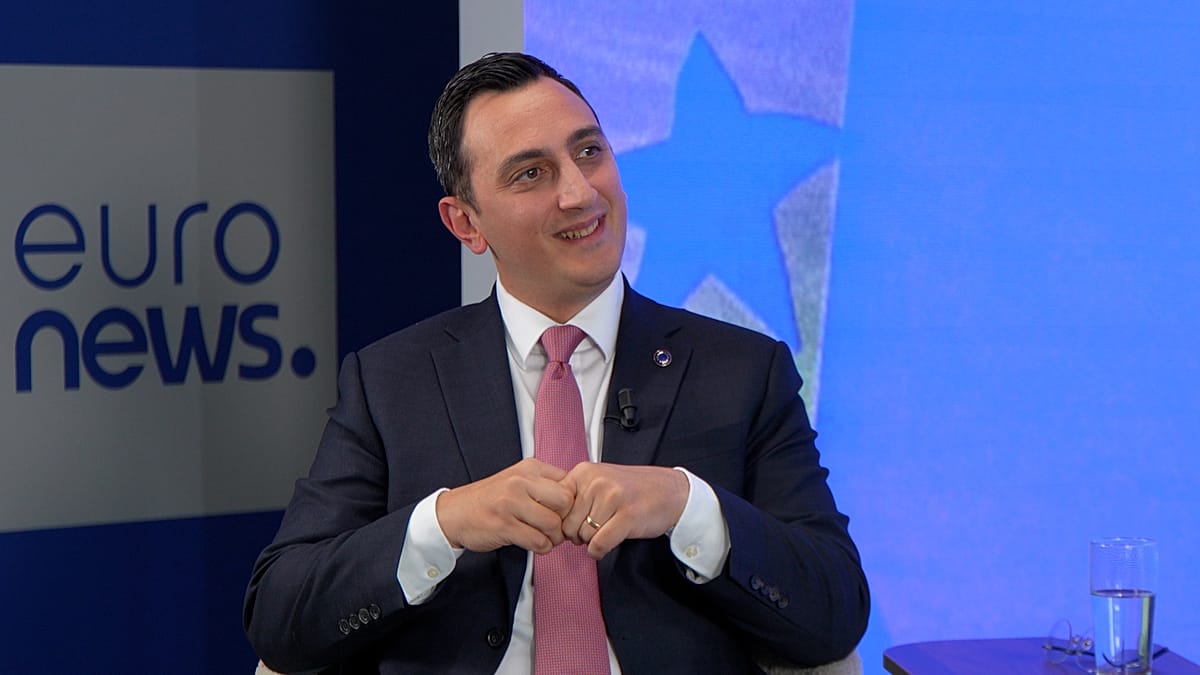Brussels has, once again, voiced harsh opposition to attempts to revive a European Super League.
“The Super League was, is and will continue to be a mistake. This is not a good idea,” EU Culture and Sport Commissioner Glenn Micallef told Euronews in an exclusive interview.
The Super League was a brainchild of top clubs from England, Spain and Italy to establish their own competition and break away from UEFA, Europe’s professional football governing body.
The concept was to have some of the richest clubs compete permanently, ostensibly allowing the participating clubs to earn more income, like in the United States.
“In Europe, we believe in open competition,” Micallef said. “This way, we could also support our European domestic leagues to continue to be sustainable.”
The initial European Super League announcement in 2021 was met with significant opposition from fans, players, managers and football clubs.
It also faced opposition from UEFA, FIFA — football’s global governing body — and some national governments. Critics of the league raised concerns regarding potential exclusivity and reduced competitiveness.
But a string of court rulings, the most recent in October, prohibited UEFA — or anybody else — from stifling the league. Such a ban could violate certain EU competition regulations.
These rulings gave new oxygen to backers of the league who continue to try to organise a breakaway competition.
Yet, the Sport Commissioner remains unfazed. “It’s no secret that European football (…) faces challenges from a sustainability point of view. Various issues are contributing to this, including heavy match calendars, including pressures on the financial side.”
The answer should be that all stakeholders sit together to find solutions, according to Micallef.
“I’ve been shocked to see, over the last few days, discussions on athletes’ welfare, for example, without the union representing the athletes being around the table. These are discussions that we need to have in an inclusive environment with all stakeholders around the table.”
The growing mental and physical health problems
Micallef also addressed the “alarming” mental health situation in the bloc.
Around one in five (20%) young people in the EU are suffering from anxiety, depression or some other form of disorder, according to the World Health Organization (WHO).
The Commissioner blamed a poor quality of life for these mental problems, for which more access to culture could be a remedy.
He sees improving cultural offerings for young people as a healthy alternative to excessive screen time, “which, in my opinion, is directly linked to the problems that we see with mental well-being, not to mention the negative psychological, physical and emotional effects it has on younger generations,” Micallef said.
In addition, Micallef warned against the rising problem of obesity, which he described as an “epidemic”.
“We have, in our populations, almost half of our citizens that are not active physically, not even an hour a week,” he said.
“And this is linked to a huge problem that we have in terms of non-communicable diseases, such as cardiovascular issues, diabetes, and health expenditures that we see soaring.”
He added that, in this sense, sport could be a “free medicine”.
The EU’s first-ever strategic framework on culture
Additionally, Micallef, whose portfolio also includes culture, talked about the Culture Compass for Europe — a novel framework through which the EU will take an integrated approach to culture for the first time.
Developed by Micallef and adopted by the Commission on Wednesday, it is a non-legally binding mechanism providing a “long-term vision of what we want to achieve in the cultural sector,” Micallef said.
One of the commitments made in the Compass is the periodical publishing of a “Report on the State of Culture in the EU” to bolster artistic freedom.
It also puts forward proposals to improve the working conditions of the almost 8 million people who are employed by cultural and creative enterprises in the EU, equating to roughly 4% of the EU’s working population.
“Half of the people who are working in this sector say that they face poor working conditions. If we continue to allow this to happen, it will be very hard for the cultural sector to attract and retain talent,” the European Commissioner explains.
The Culture Compass is expected to be approved by all three EU institutions in 2026.
